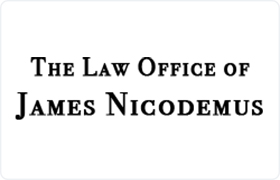Lincolnshire Landlord-Tenant Lawyer, Illinois
Sponsored Law Firm
-
 x
x

Click For More Info:
-
The Law Offices of James Nicodemus
2700 Patriot Blvd Suite 250 Glenview, IL 60026» view mapReal Estate Law Experienced Real Estate Lawyer
When you need accurate representation, whether it’s a divorce lawyer, family lawyer or child custody attorney, James Nicodemus is there for you.
800-986-5891
Barry I. Mortge
Commercial Real Estate, Landlord-Tenant, Litigation, Banking & Finance
Status: In Good Standing
Barry Mortge
Commercial Real Estate, Landlord-Tenant, Litigation, Civil & Human Rights
Status: In Good Standing
Sandra R. Simon
Landlord-Tenant, Real Estate, Government, Business
Status: In Good Standing Licensed: 27 Years
Jeffrey Howard Meyer
Business & Trade, Civil Rights, Landlord-Tenant, Transactions
Status: In Good Standing Licensed: 36 Years
 James Nicodemus Glenview, IL
James Nicodemus Glenview, IL AboutThe Law Offices of James Nicodemus
AboutThe Law Offices of James Nicodemus Practice AreasExpertise
Practice AreasExpertise
